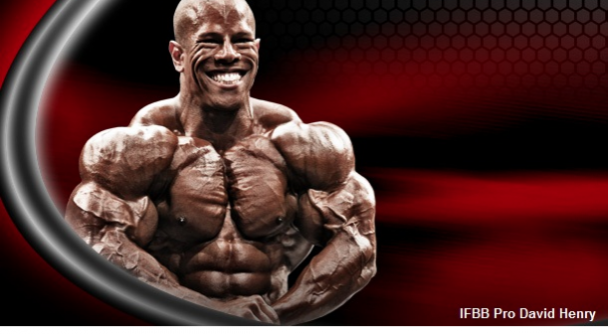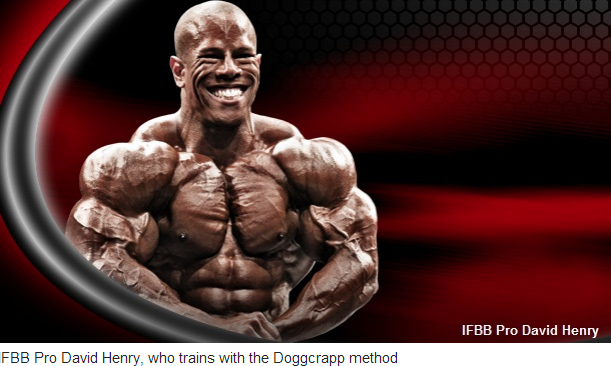The Other Side of Strength


By Richard Talens
In the three years since starting Fitocracy, I’ve personally interacted with tens of thousands of people attempting to transform themselves.
Many succeeded, but many have failed. For those who failed, it wasn’t for a lack of trying or initial motivation. After all, many did attempt to emulate the same iron willpower and work ethic that they saw in Arnold.
Thankfully I’ve also seen many success stories, many of which are in Arnold’s 1% Challenge group, whose members just last week hit a cumulative one million workouts.
If you look around the group and its success stories, you won’t see many folks who would call themselves athletic. If anything, you’ll find a scrappy, try-hard, bunch of geeks, moms, and Average Joe’s, who’ve found their spark.
And so, I’ve become obsessed with analyzing characteristics of those who have succeeded in these life-altering metamorphoses, in particular becoming strong. (Or ripped, jacked, shredded, if you prefer those words.)
When I was younger, Arnold’s physique was my definition of strength. I thought that the only path to such transformation was with an indomitable iron will that would motivate me past any level of pain and blast through set after set of lactic-acid-inducing torture.
Yet what I found out was that these transformations always had another side to them. This other side contained softer characteristics not usually associated with strength: humility, self-compassion, and mindfulness.
Still, these transformations were very real and just as good as any.
I quickly learned that the qualities that make certain people achieve great strength are very different than what most people imagine.

(Pictured above, user DrivenDisciplin, exhibits these characteristics)
They show humility
I’ve come to find that beginners attempting to lose weight can be bucketed into two groups: those who attempt to “will” their way into success by sheer “eating less and moving more,” and those who approach weight loss with a bit more curiosity and humility.
If I only had one piece of information to predict someone’s success, it would be knowing which bucket someone falls into.
Those who rely only on sheer willpower are headed for failure. You see, willpower is a finite resource. Ironically, dieting seems to reduce the amount of willpower we have, while an increase in hunger simultaneously increases the required willpower to keep going.
On the contrary, those who show humility tend to be curious and understanding of their limitations, without being hindered by their ego. They research the basic tenets of dieting, establish a positive feedback loop that doesn't rely on willpower, and are open to information, even if it flies in the face of preconceived notions – such as the myth of breakfast or small meals.
The Fitocracy user pictured above, DrivelDisciplin, credits his transformation to having an open mind.
“Many go into the gym with a chip on their shoulder convinced that their way is the only way and refuse to deviate from this path. I always have an open mind, read everything I can about training, and never think I know too much to take advice,” he says.
They show self-compassion
What are the typical reactions from someone who messes up on their diet? Hate. Self-loathing. Guilt.
For those looking to make a transformation it’s not hard to imagine decades, or even a lifetime of of slipping up, followed by these feelings.
These feelings, however, create a self-fulfilling prophecy. A trap. By reacting in this way, you can get blinded to the fact that perhaps you cannot just “will” your way to success on just any program. Oftentimes, adjustments to one’s training, diet, or mentality need to be made, especially to account for life.
Being hard on yourself will only make you suffer through the exact same attempts over and over again – usually with the same outcome.
As it turns out, research suggests that self-compassion may be the solution to this trap – not just with fitness, but with everything in life.
Now, you might think that self-compassion means that you’re just going to “let yourself off the hook.” On the contrary, research shows that self-compassion actually gives one the sense that improvement is possible; those who exhibit self-compassion are less likely to avoid the same mistake again.
Time and time again, I’ve found that those who make successful transformations tend to be self-compassionate. They forgive themselves for their past failures so that they can try again.
For example, I once had a client who strayed from her diet every time she traveled. Feeling guilty because she “was unable to show discipline,” she would binge for days after she came back (or try to compensate with too much cardio, which eventually triggered a binge).
Instead, I encouraged her to forgive herself for those mistakes, explaining to her that the thought patterns and triggers of traveling inevitably created an environment in which slipping up was inevitable (or at least, made self-control extremely costly).
After forgiving herself, she no longer attempts to “will” her way through dieting while she travels and instead, just takes a break from dieting. Just as research predicts, she actually gets right back on her diet.
They are mindful
I have a friend who started training five years ago. In that amount of time, he’s read everything that he can on fitness – probably more so than I have in that time span – yet hasn’t made much progress.
I had the fortune (or misfortune) of training with him the other day while he was in town. He proceeded to take his first set of bench way past the point of failure. On his next set, he was upset that his performance was suffering. (As his spotter, I was pretty much doing bicep curls.) He proceeded to repeat the same weight, taking each deteriorating set further past failure, all while expecting a different outcome.
Upon leaving the gym, I thought to myself, “How can someone who geeks out about fitness that much be so thick?”
It suddenly hit me. For all of the information that he reads, he was just never mindful about fitness. In this case, he never thought about the connection between performance and taking set after set to failure.
Knowledge doesn’t always translate into wisdom. You need to be mindful in order to make that leap.
On the opposite end of the spectrum is Dante Trudel, the creator of the infamous training program,Doggcrapp. Now, I wouldn’t be surprised if Dante has never voluntarily read a research paper on fitness in his life, yet he is one of the wisest, most mindful people in fitness, which has helped him create elite physiques.
Mindful people are able to accumulate wisdom efficiently. They quickly sort out what impacts them and why, and then use that information to keep their progress moving forward. Mindfulness and humility also go hand in hand; you cannot be mindful if you’re sure that you know all of the answers.

So, what is strength?
I used to think that people who are strong are simply those who spent more time at the gym or displayed more willpower. The reality, however, is that different people need different characteristics for their own personal transformation.
An athlete with elite genetics, for example, might simply need to develop dedication and consistency. For someone like that, almost anything will work as long as he puts in enough time and dedication. But a former fat kid like myself could not have been successful without developing mindfulness and self-compassion.
And that’s the beautiful thing about strength; it’s a manifestation of one’s inner qualities, each person needing their own special combination to translate those qualities into something visible and powerful.
An individual’s strength is a story about their personal growth.
And many times, that story isn’t about the harder qualities like pushing through pain. Instead, it’s often a reflection of mindfulness, openness to new experiences, self-compassion, and the ability to forgive yourself for being human.
ABOUT THE AUTHOR

Richard Talens is a Cofounder and Chief Growth Officer at Fitocracy. Dick is a former fat kid who used to look exactly like the kid in Up. He eventually geeked out over fitness enough to lose a lot of weight, get stronger, and compete in bodybuilding shows, even if he doesn't even lift. He likes to tell people his title is Chief Gains Officer. Outside of Fitocracy, he's been the nutritional coach to a many clients, including Miss America (successful) and his fat cat (unsuccessful). He has never been given the opportunity to coach a horse, however.
Website: https://www.fitocracy.com
Twitter: https://twitter.com/DickTalens
